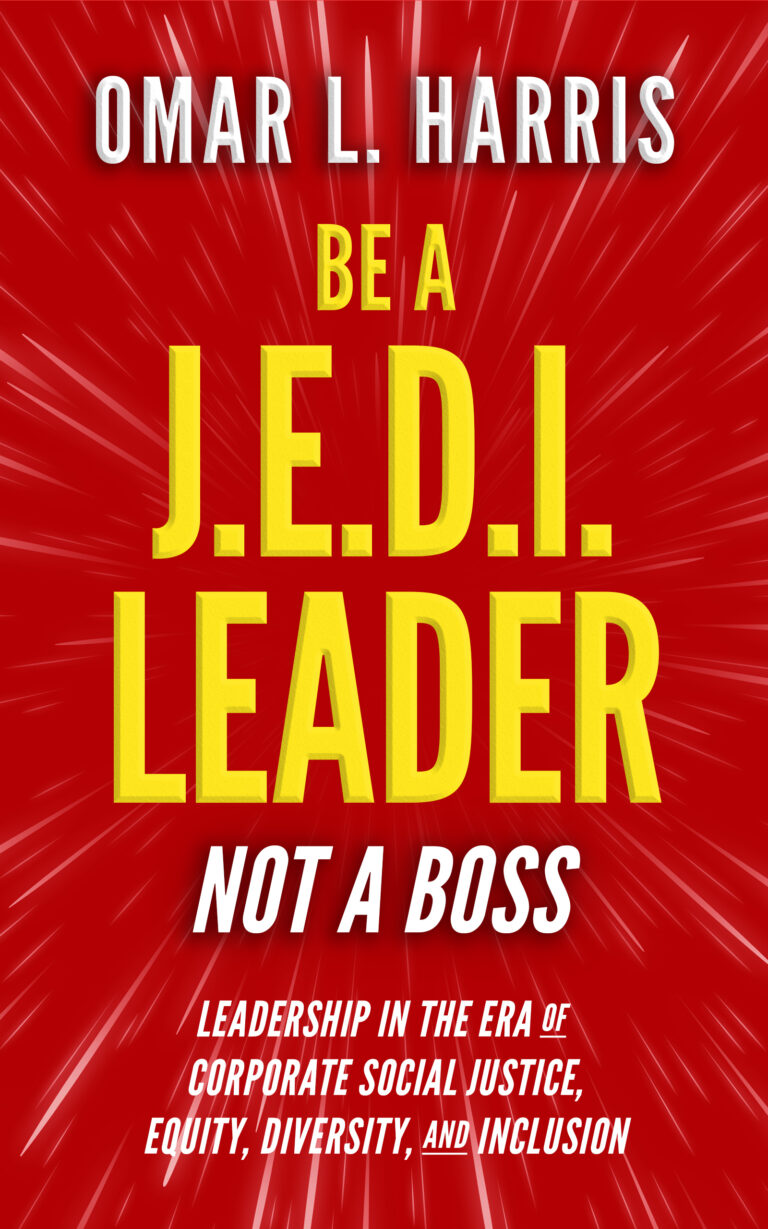In recent years, CEOs and other business leaders have come under harsh criticism for fostering a monolithic and white-male-dominant workforce, for damaging the environment and possibly risking the survival of the human species for short-term gain, and for undercompensating and undervaluing the employees whose labor makes their fortunes while hoarding wealth themselves. Author Omar L. Harris offers guidance on how to become a different type of business leader, a “servant leader” or J.E.D.I. (Justice, Equity, Diversity, and Inclusion) leader. His ideal executive thinks of their job as an opportunity to serve the greater good and to build an organization that responds to, and cares for, its employees, the larger community, and the world as a whole, not as an opportunity to earn a vast income or feed their ego. He offers some solid reasons for choosing such a path over the traditional path of executive greed and self-aggrandizement and makes a good case both to individual business leaders and to corporations that such a path is in fact in their best interests and will lead to a healthier, more resilient, and stronger future for both individual executives and the companies they lead.
Harris also offers some substantial and pragmatic guidance on how to change an individual’s mode of thinking, and a business’s policies, in order to move towards J.E.D.I. leadership. Encouraging and successful examples of such leadership are shown and praised, giving the reader a clear and visible idea of what that leadership looks like in actual practice. He speaks from an unapologetically progressive viewpoint and is therefore probably less likely to win over the staunch traditionalist, politically- and socially conservative business leaders, who aren’t looking through those lenses. Even other progressives, too, may disagree with some of his suggestions- the idea that cigarette smoking should be banned once and for all, for example, given that making other addictive substances illegal and criminalizing their use has had damaging results in many communities and for many people. In another example, he praises Dunkin’ Donuts employees that chose not to serve certain police departments with a history of injustice and violence in the community – but another progressive might point out that if businesses can choose not to serve customers for political reasons, that then also applies to conservative business owners who wish not to serve LGBTQ people, or interracial couples, or non-Christians.
Still, there is value in considering what can be done and should be done by corporations and business leaders to improve their community, and he certainly brings forward a substantial and thoughtful range of possibilities to consider. And, in the long run, his main goal in this book is less to suggest specific individual actions businesses should undertake than to try and change the entire mindset and focus of business leaders, so that their goals align with the broader needs of their community and the world, and for the most part, he makes a solidly convincing case.
Omar L. Harris provides some useful guidance, encouragement, and motivation for CEOs and other business executives who want to serve a larger good than their own incomes and egos in BE A J.E.D.I LEADER, NOT A BOSS.
~Catherine Langrehr for IndieReader


